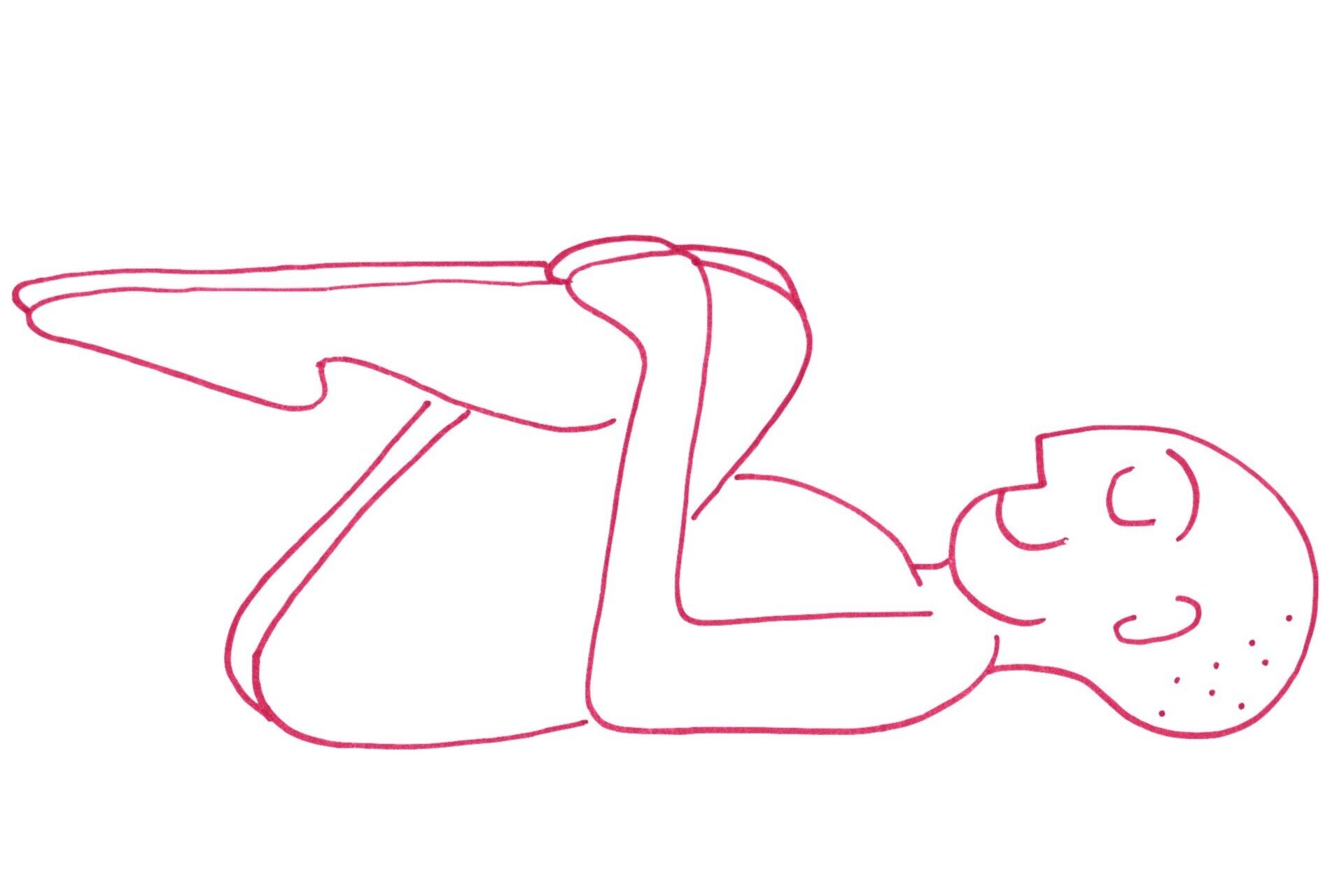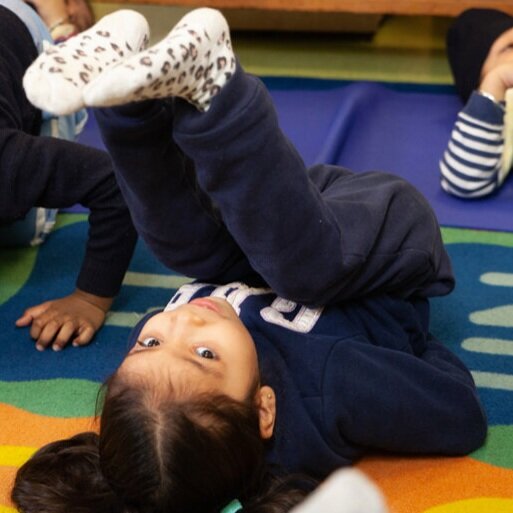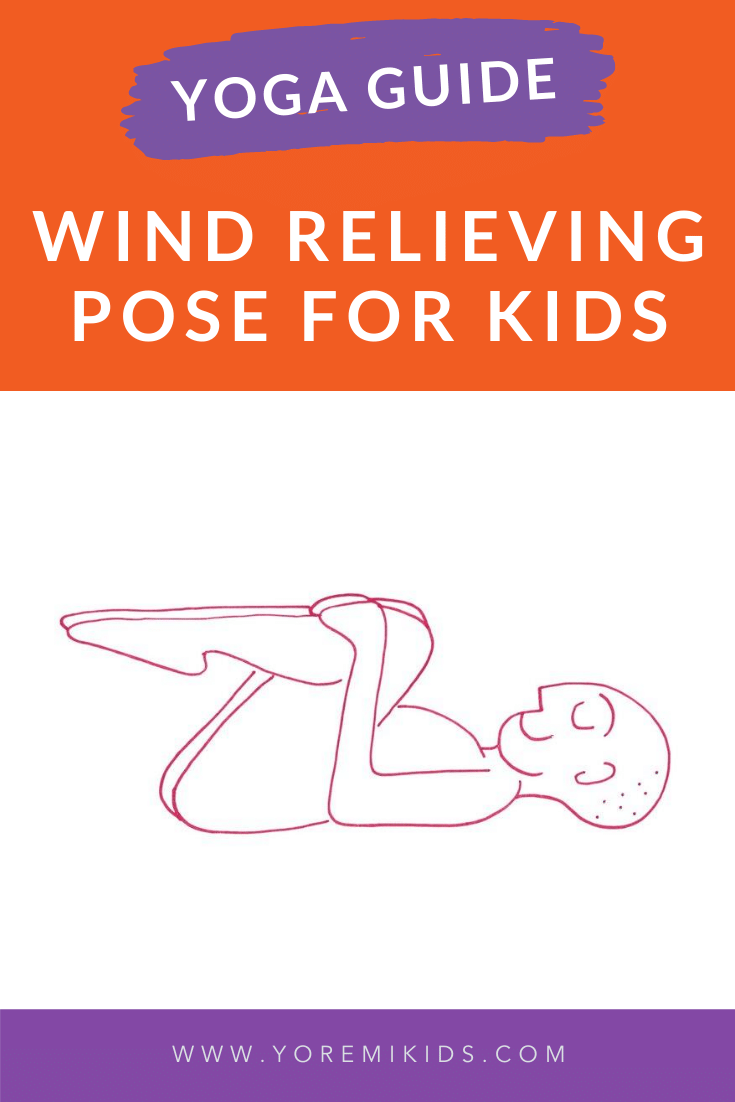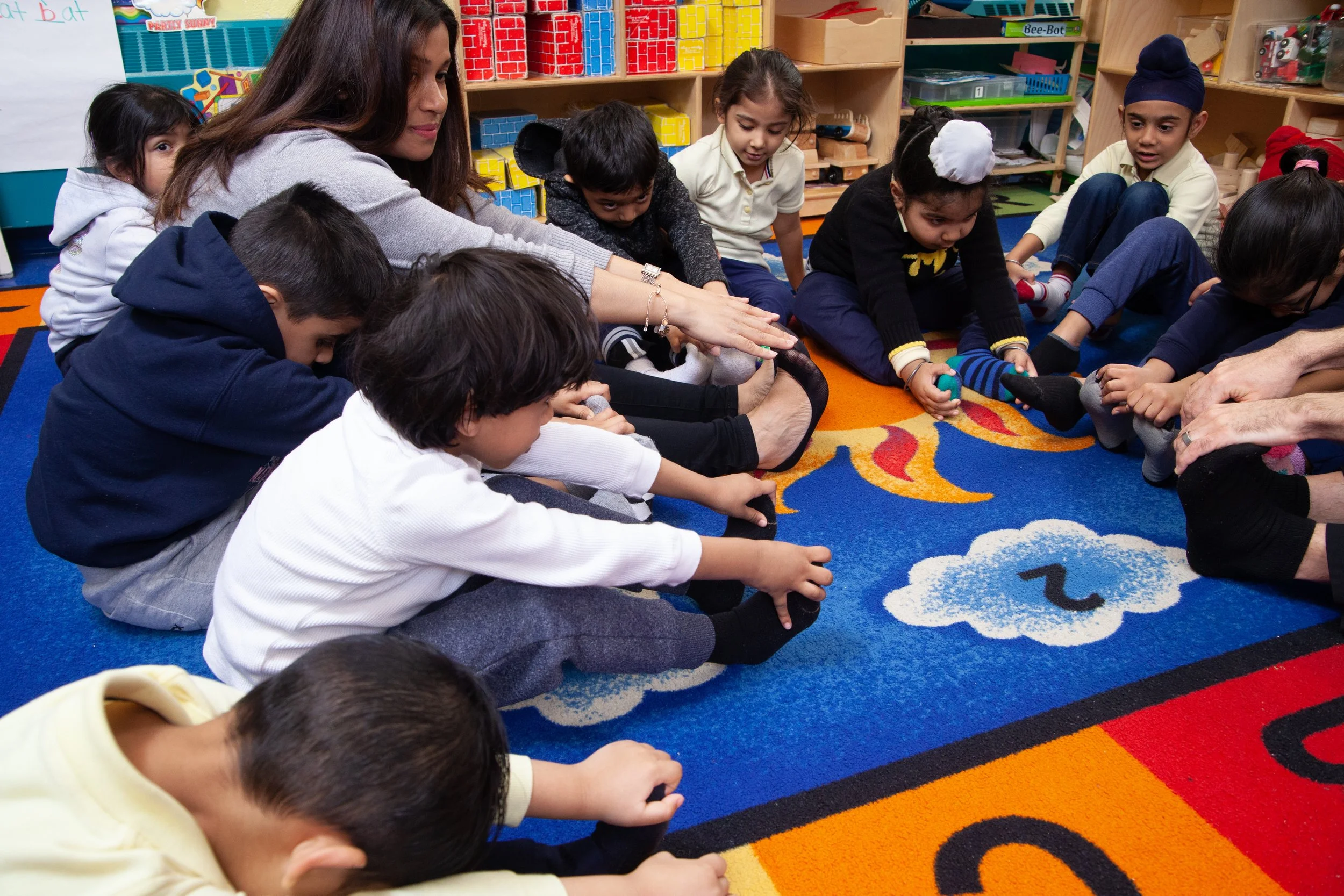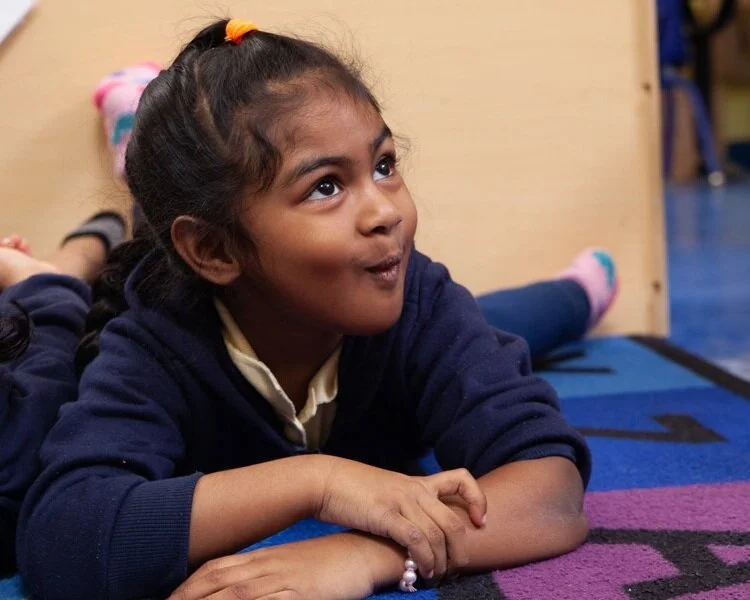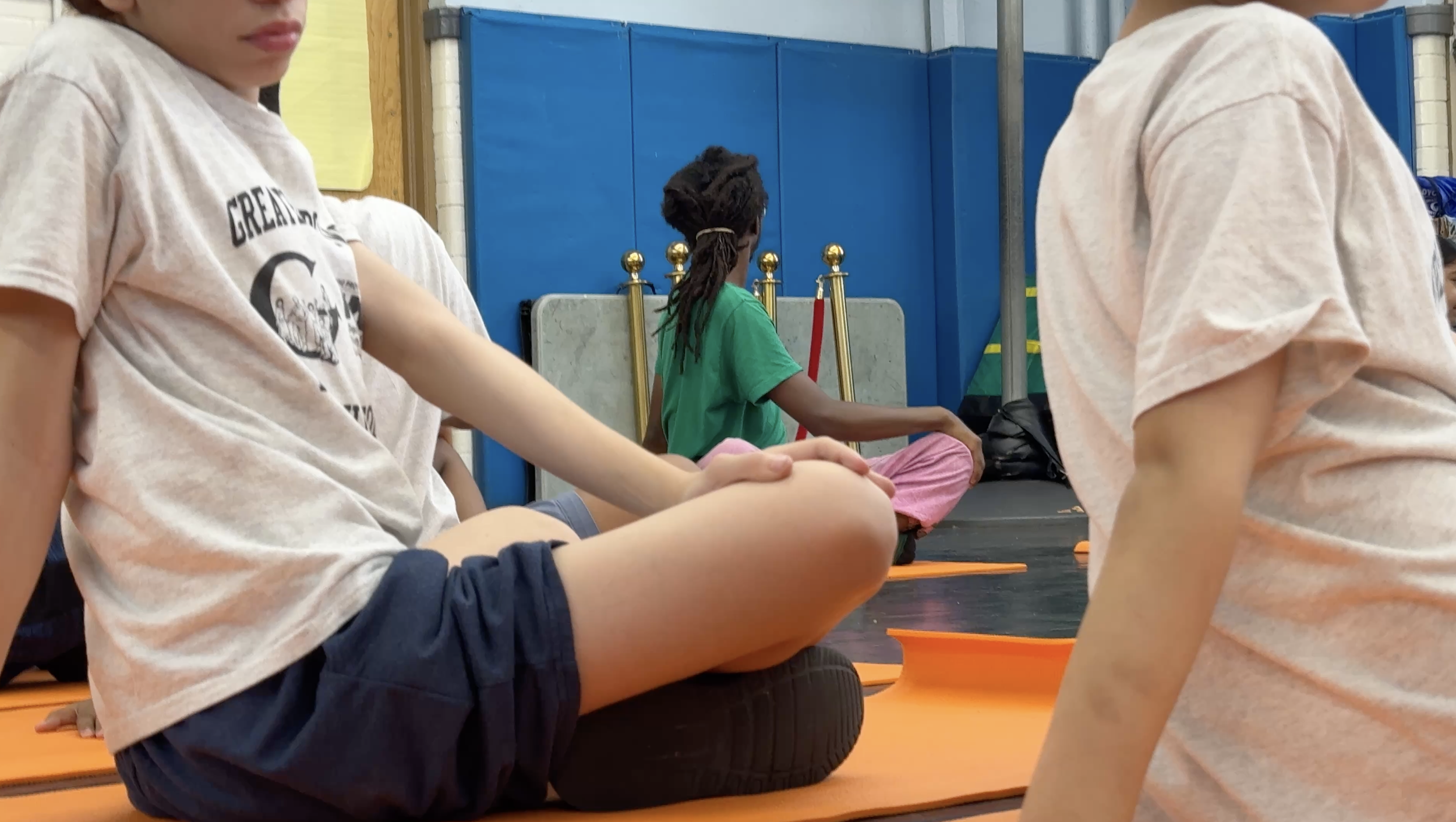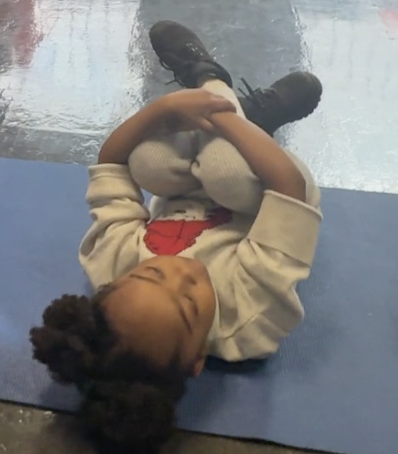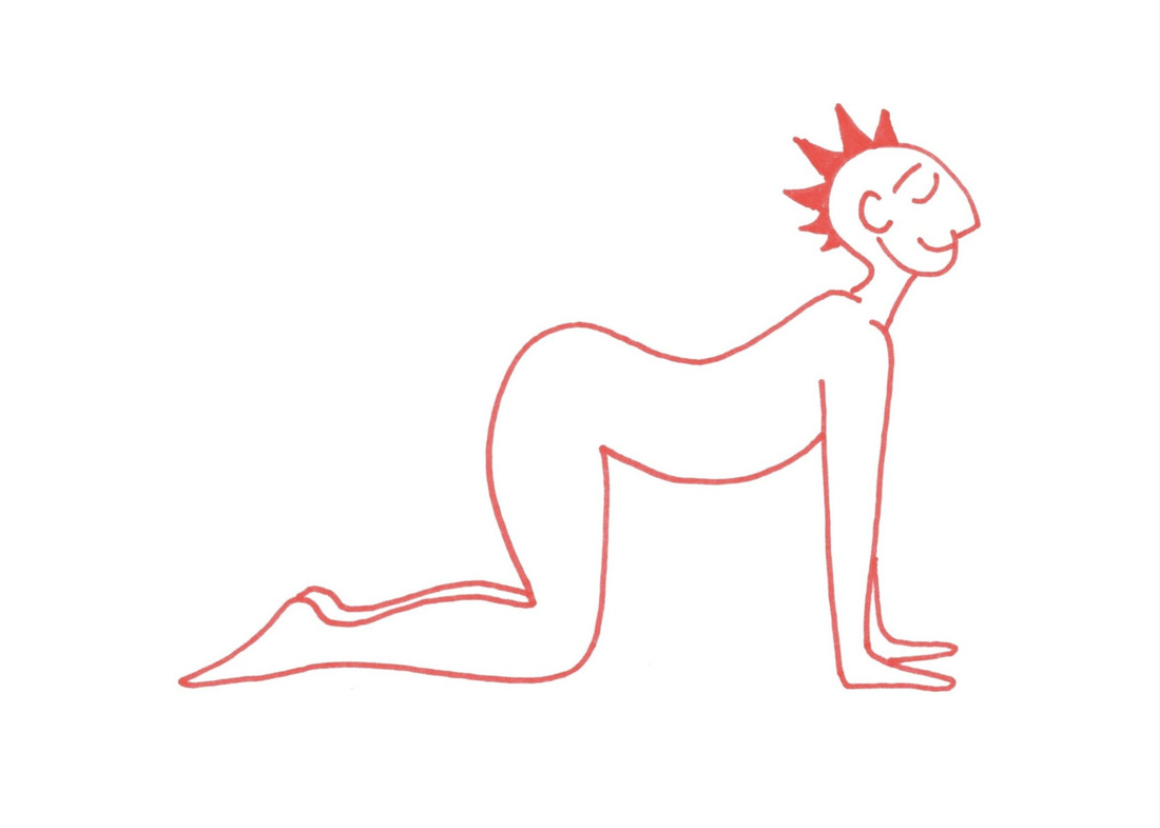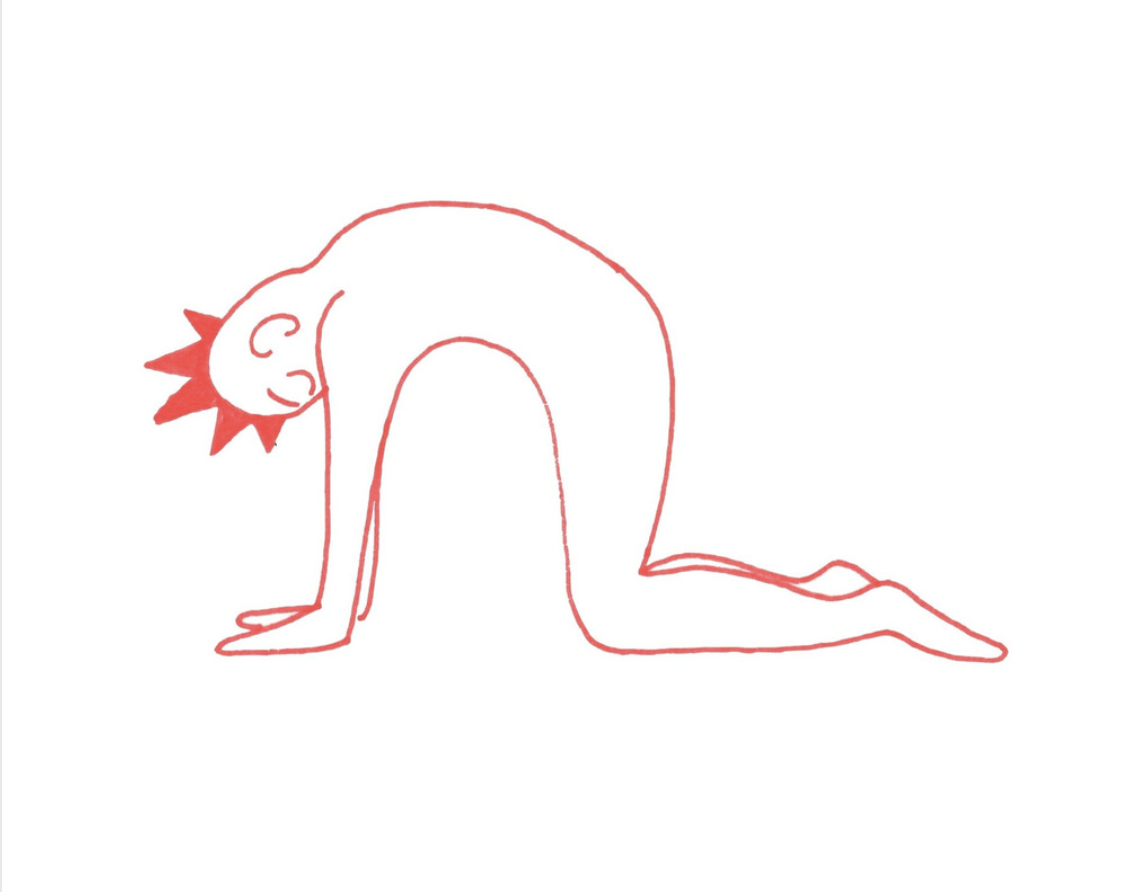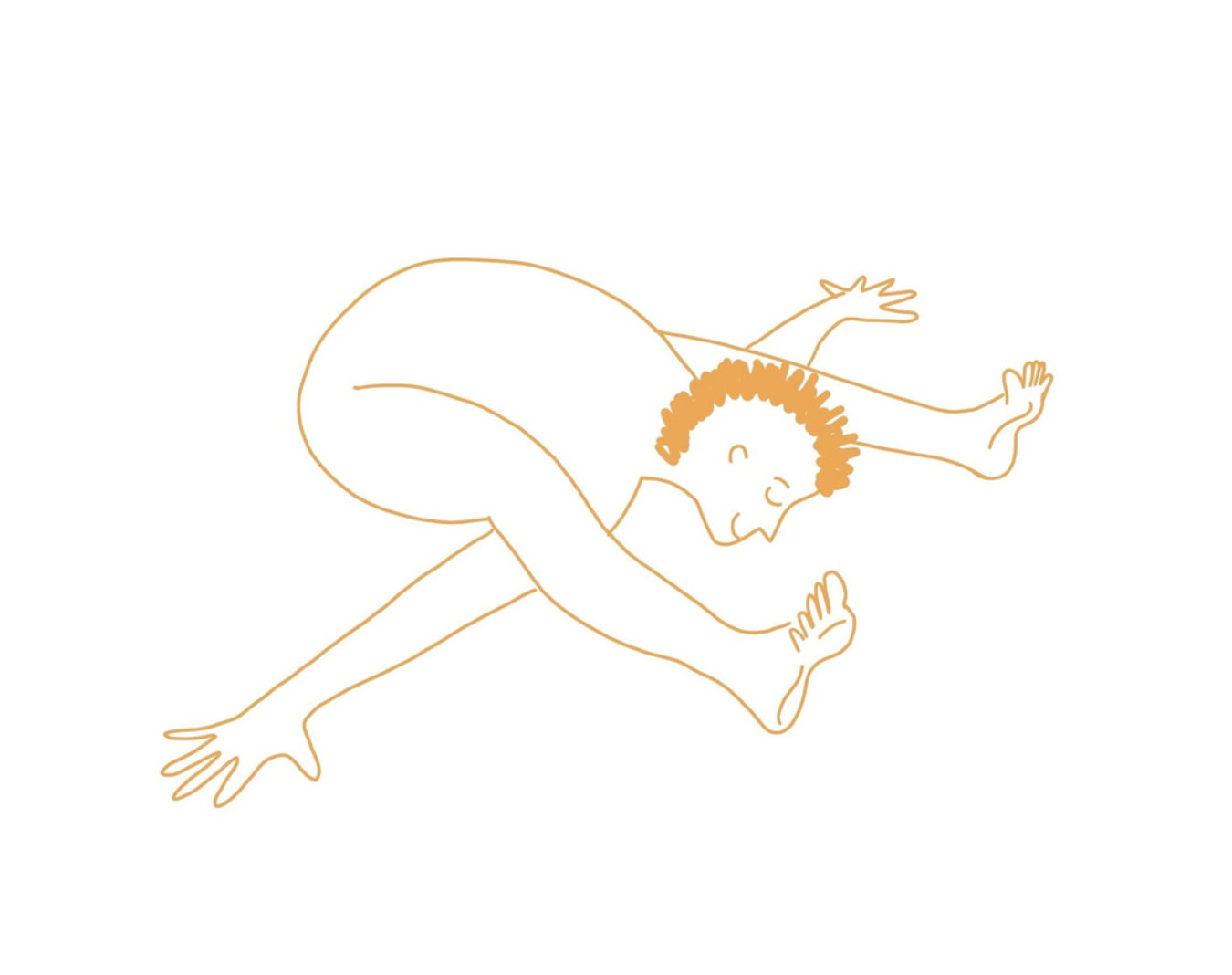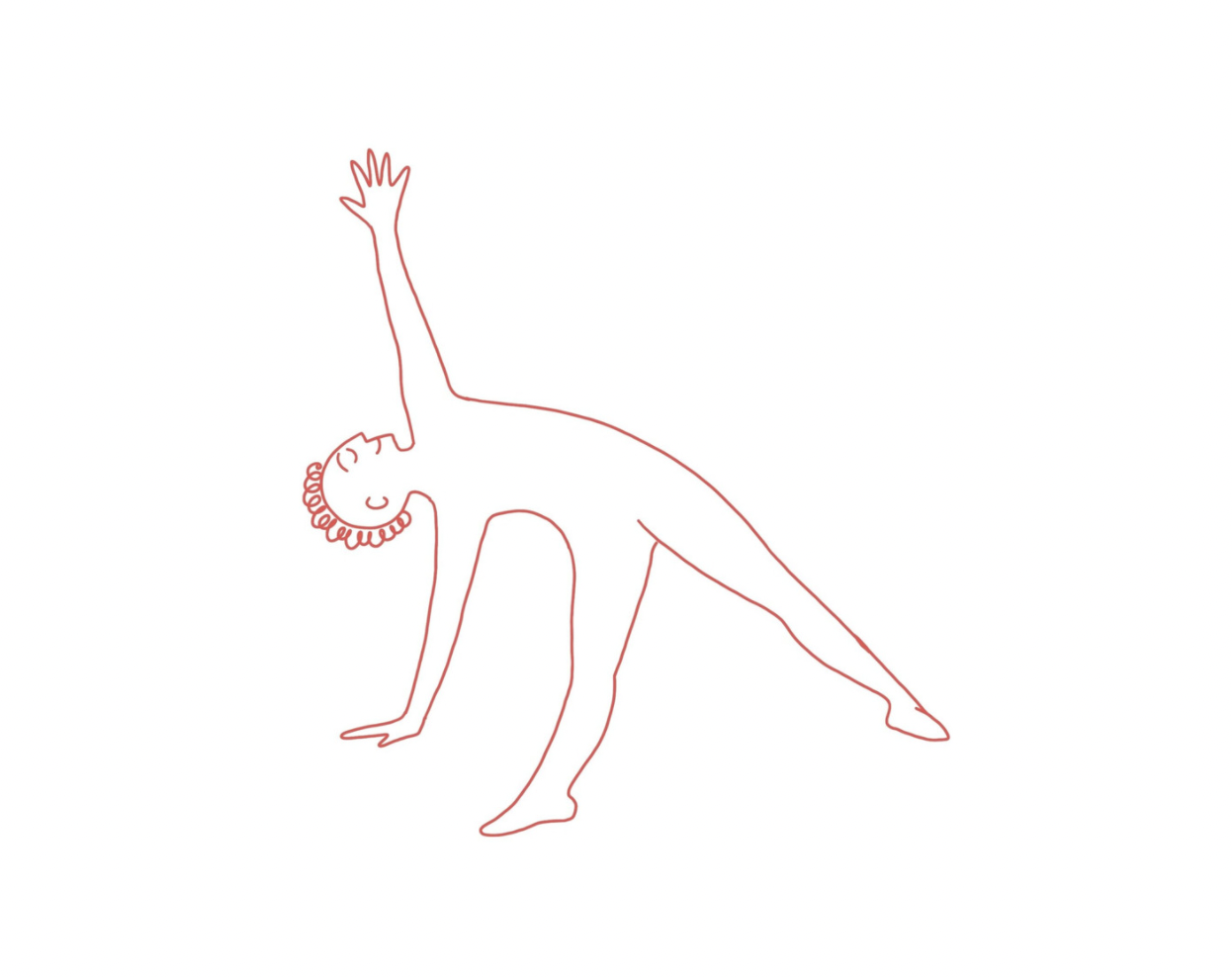Wind Relieving Pose for Kids: Gentle Yoga for Digestion and Connection (Pig Pose)
Note: This post was updated in July 2025 with new tips, research, and activity ideas to help you teach kids yoga and mindfulness with confidence.
TLDR: Wind Relieving Pose, also known as Pig Pose in kids yoga, is a gentle yoga posture that supports digestion, eases tension in the hips and back, and builds body awareness. With playful variations and affirmations, it’s a powerful mindfulness tool for classrooms, helping kids connect with their breath, body, and emotions.
Are your students wiggly energy after lunch or circle time?
Looking for a silly, effective way to calm bodies and support digestion?
Do your kids have tightness in their hips and low back?
Welcome to Wind Relieving Pose!
Wind Relieving Pose, also known as Knees-to-Chest Pose or Pig Pose is a gentle, playful yoga posture that supports digestion, eases tension, and helps kids connect with their bodies. This accessible reclined yoga pose can support children’s physical comfort while nurturing emotional regulation and body awareness.
The wind releasing pose gets its name because it helps release gas and can even relieve bloating and abdominal pain improving digestion and elimination by gently massaging the abdominal organs. It also releases tension in the belly area, hips and low back. So before eating grandma’s bean-lover’s chili, let’s master this gas-busting yoga move!
The Benefits of Wind Relieving Pose for Kids
Wind Relieving yoga pose not only combats gas and bloating, it’s also a wonderful stretch for the lower back and hips. By gently pulling the legs into the chest, we strengthen the back and abdominal muscles while toning the leg and arm muscles.
Wind Relieving Pose:
✨ Supports digestion and elimination
✨ Releases tension in the belly, hips, and lower back
✨ Encourages interoception and self-regulation
✨ Promotes self-love and calming connection
In kids yoga, especially yoga for preschoolers, turning poses into animals and nature makes the practice joyful and developmentally appropriate. Wind Relieving pose looks a lot like a pig rolling around in the mud. Let’s give ourselves a hug and grunt and oink along with Rachel while we master this gas relieving yoga pose.
How To Teach Wind Relieving Pose (Pig Pose)
Lie on your back with arms and legs long
Inhale, then exhale and hug one knee to your chest
Keep the other leg extended or bent with the foot on the floor
Gently squeeze the knee toward the belly
Draw the tailbone toward the floor to lengthen the spine
Allow the chin to tuck slightly to keep the back of the neck long
Breathe deeply, relaxing your jaw and shoulders
Switch sides, then bring both knees to chest for a full version
If available, you can move the grip higher, holding opposite forearms or elbows
Optional: Rock side to side and say, “I love myself!” for extra joy
Tips and Variations For All Learners
If your stomach or chest is large, it might be difficult to clasp both hands around the leg that is drawn in. Draw your knee slightly to the side of your body, and hold with one hand or use a yoga strap around the shin.
If your hips are very tight, the extended leg might hover off the floor. Flex the foot to bring the calf toward the floor or bend the knee and place the foot flat on the floor instead.
Draw your tailbone downward, to lengthen the spine and keep the back supported on the floor.
With both knees to chest, it can feel good to add a gentle pulse on the breath. Inhale and release the grip and knees away slightly. Exhale and pull the knees inward. Repeat for several breaths.
Relax your jaw, face, and neck as you release tension in the hips and low back. If you tend to hold tension in your jaw, flutter the lips as you exhale to loosen and release.
Kid-friendly Wind Relieving Pose Variations
Starting Wind Relieving pose with bringing a single leg to the chest and then the other helps us improve the quality and efficiency of our digestive system by targeting each section of the colon.
Our right leg to chest massages the ascending colon while the left knee to chest massages the descending colon. Both knees inward massages the transverse colon as well as both sides.
Experiment with each variation and encourage children to notice how their body feels - this builds interoceptive awareness. Interoception is one’s ability to sense what is happening in their body (here are some sensory processing activities that help with proprioception and vestibular sensory awareness).
Kids who expand their interoceptive sense can more easily identify when they are feeling hungry, full, hot, cold or thirsty and have more success with self-regulation. Ask children how the pose feels…can they sense the wind moving?
If lying on your back is uncomfortable or your students are practicing without yoga mats, you can still get some of the benefits of Wind Relieving pose while staying on your feet.
Try crouching down low on your toes and hugging knees to chest as if making yourself into a ball. You might pretend to be snowball or an apple fallen from a tree. Try this Apple Tree activity to combine a standing variation of Wind Relieving pose with a balance in Tree pose!
One of our favorite ways to end our Yo Re Mi class after relaxation is to bring our knees to our chest and give ourselves a great big hug. We rock side to side, hugging our knees inward, then take a deep breath and say, “I love myself!” Could you use a hug or some self-love today? Just try it!
Why This Belongs in Every Classroom
Wind Relieving Pose is more than a stretch - it’s a tool for grounding, calming, and connecting. When children feel physically better, they learn better. And when we invite them to connect with their bodies, we build self-awareness and confidence that goes far beyond the yoga mat.
Wind Relieving Pose is also a beautiful way to transition into rest. The inward movement, gentle compression, and grounding sensation help signal to the body that it’s time to slow down.
At the end of a kids yoga class, this pose encourages children to connect with their breath, feel safe and supported, and prepare their nervous systems for stillness. Try following Wind Relieving Pose with a short guided relaxation or a simple affirmation like:
💬 “I am safe. I am calm. I am ready to rest.”
Whether winding down a busy day or concluding a movement session, this pose sets the stage for reflection, integration, and inner peace.
Take the Next Step
Want more yoga tools for your classroom or practice? If you’re ready to integrate Wind Relieving Pose and other mindfulness for kids strategies into your teaching practice, check out our online Kids Yoga Teacher Certification. You’ll learn how to bring musical yoga and evidence-based mindfulness tools into your classroom and be supported by a vibrant community every step of the way.
READ NEXT: More kids yoga & mindfulness for kids resources
FAQ: What is Wind Relieving Pose and why teach it to kids?
Wind Relieving Pose, or Pig Pose, is a gentle, reclined yoga posture that supports digestion and eases tension in the hips and lower back. It's great for calming energy and helping children connect to their bodies through playful, mindful movement.
SAVE THIS POST
Help other educators and caregivers learn more about Wind Relieving Pose benefits.

